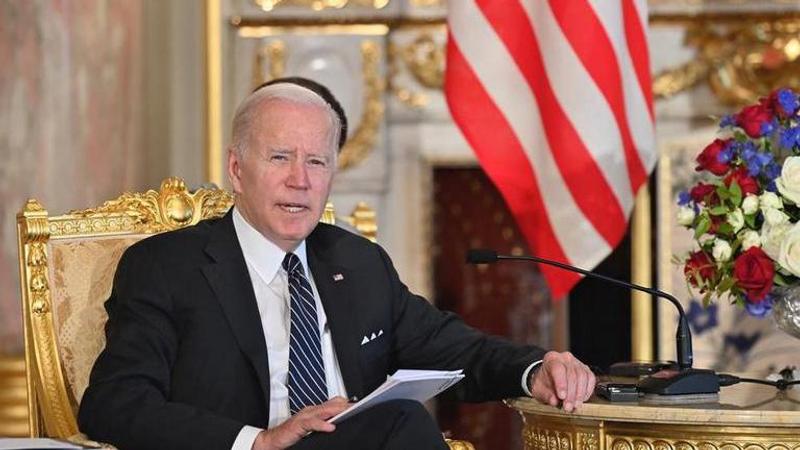Published 08:42 IST, July 25th 2022
US to hold virtual meeting of Indo-Pacific Economic Framework ministers
US will on Tuesday, host a virtual meeting of officials, representing 14 countries that have joined the Indo-Pacific Economic Framework (IPEF).

US will on Tuesday, host a virtual meeting of officials, representing 14 countries that have joined the Indo-Pacific Economic Framework (IPEF). The meeting will be hosted by US Trade Representative Katherine Tai and Commerce Secretary Gina Raimondo. The framework was launched back in May, during US President Joe Biden on his trip to Aisa with an aim to increase economic engagement on the Asian continent.
IPEF fills the void that former President Donald Trump created after quitting a multinational trans-Pacific agreement. The pull-out served as an opportunity for China to expand its influence in the region. Notably, Beijing has inked 16 FTAs with 24 countries or regions since 2002 and in 2016, trade with FTA partners (including Taiwan, Hong Kong, and Macao) constituted nearly 40% of China’s total trade volume and saw import duties reduced by RMB 42.2 billion ($6 billion) that year, according to asiasociety.org.
As per the statement, Tuesday's meeting will focus on issues of trade, supply chains, clean energy, infrastructure, taxes and combating corruption. Meanwhile, in a separate statement, Tai said that the White House was mulling a plan that could see the end of trade sanctions against Mexico. “We have repeatedly expressed serious concerns about a series of changes in Mexico's energy policies and their consistency with Mexico's commitments,'' US Trade Representative Katherine Tai said in a statement. She said “U.S. companies continue to face unfair treatment in Mexico.''
More about IPEF
IPEF is focused on furthering Indo-Pacific economic integration, defining norms and rules, particularly in new sectors like the digital economy, and ensuring secure and resilient supply chains, according to White House national security adviser Jake Sullivan. The notion that new global trade regulations are required stems from more than just dissatisfaction among US voters. It's an acknowledgement of how the pandemic impacted the entire supply chain, closing factories, delaying cargo ships, blocking ports, and driving up commodity prices worldwide. The US trade representative and the Commerce Department will work together to negotiate with partner countries around four pillars, or subjects. Talks on the "fair" trade pillar will be handled by the US trade representative.
(Image: AP)
Updated 08:42 IST, July 25th 2022




